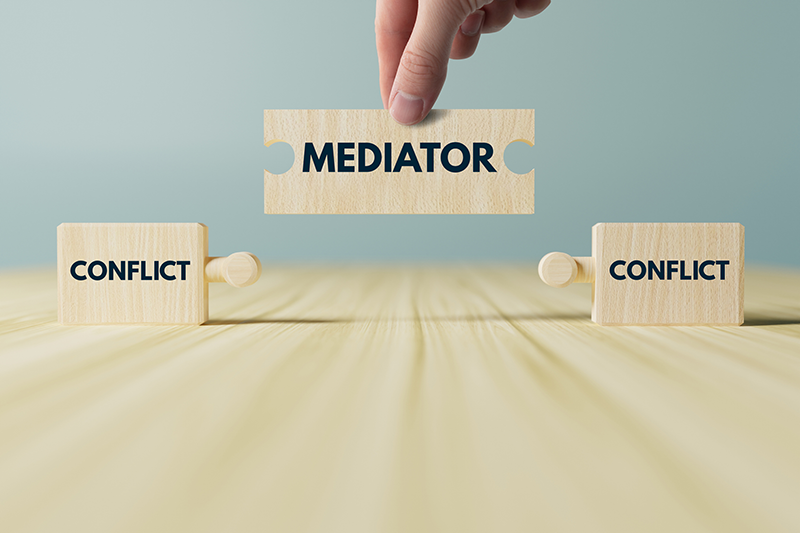Mediation
Mediation allows a separating couple to identify and resolve outstanding finance or children issues using the help of a third-party and neutral mediator.
A mediator does not represent either of you. They are an independent mediator whose role is to help facilitate negotiations and discussion between couples. The aim is to reach proposals that both parties are content with, without having to issue court proceedings.
A mediator will not impose decisions – they help you to find outcomes that work for you and your families and assist with reaching a compromise.
Mediation can be particularly useful in discussing child arrangements. Many mediators will engage in child-inclusive mediation – they will meet separately with the children and they may (if the child wishes them to) provide some feedback to the parents. Children can feel empowered if they feel listened to and many parents find that mediation helps to encourage a more cooperative future co-parenting relationship – which will always be in the child’s best interests.

Any agreement reached can be reflected in a Memorandum of Understanding or a Parenting Agreement. In relation to finances this can be converted to a legally binding Consent Order.
Courts are keen for couples to attempt mediation in the first instance wherever possible. Parties contemplating court proceedings should first attend a Mediation Information and Assessment Meeting (‘MIAM’) – at this meeting all of the different options for resolving your dispute can be discussed, as well as thought given to whether mediation is suitable.
Even if it is not always possible to resolve everything in mediation –the gap between the parties can be narrowed, and some of the issues can be resolved – meaning that any subsequent litigation can be less time and cost intensive.
Pros:
- The cost of mediation can vary, but it can be less expensive than going through the court process because rather than each pay for a lawyer you share the cost of one mediator.
- The mediation process is often much faster than following a court timetable.
- The voice of the child can be heard.
- You can structure mediation so that your legal advisors are also involved directly – or giving support through the process.
- The mediation process is less adversarial than litigation and will promote a civil ongoing relationship between the parties – something that is especially important for parents and even more important for their children to see.
- Parties have more control over the agreement reached – both have the opportunity to tailor solutions rather than simply have an outcome imposed.
Cons:
- Mediation is not appropriate for every situation. It may not be a suitable route to take where there are concerns about domestic violence – but remember shuttle (where each person is in a separate room) and /or remote mediation can work particularly well in these circumstances.
- No one can be forced into mediation – if one party does not wish to engage they cannot be compelled to do so (unlike in litigation).
- There is no binding decision imposed. If either party is not willing to move from their initial position, mediation will be more challenging – but mediated outcomes as opposed to court imposed outcomes, work better and are sustained for longer.
